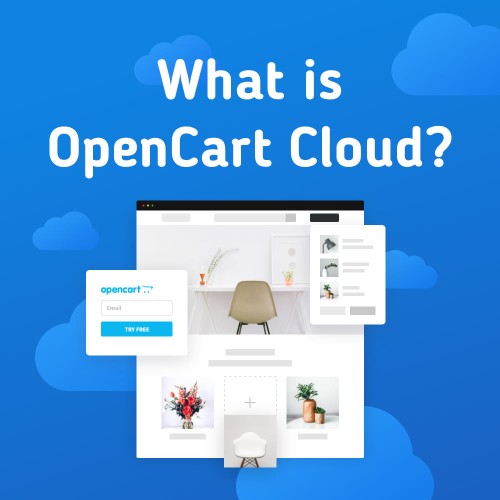E-commerce is becoming increasingly popular in B2B markets, with branded online stores and multi-vendor marketplaces seeing significant business uptick over the past few years.
Despite the availability of in-person interactions, self-service ordering is steadily increasing in influence. It provides a B2C-style experience that resonates with the new generation of B2B buyers who crave convenience and personalization. On the seller's side, ecommerce leverages technological breakthroughs to create streamlined sales processes and automate numerous aspects of B2B sales.
E-commerce empowers buyers to take the initiative in the buying process, which can impact the role of sales representatives. Sales reps are responsible for facilitating the buying process, and with the rise of ecommerce, many have been resistant to the change for fear of job insecurity. As a result, some sales reps view ecommerce as a potential threat to their job security.
Is E-commerce a Threat to Sales Reps?
Traditionally, sales teams owned all aspects of customer relationships, from cold outreach to loyalty incentives. However, with the rise of the digital age, this role has shifted to the buyers, prompting sales teams to regroup and reconsider where they fit into the picture as facilitators.
Therefore, today's most effective B2B sales reps go beyond simply selling products or services. They still advise buyers, track their needs, and guide them with expertise toward a desirable outcome.
Moreover, the increasing popularity of e-commerce has led to a shift in customer behavior. Customers do their own research online to learn about a company or product before a seller can pitch it. A recent study by TrustRadius showed that 78% of B2B customers first start with their own research before converting. That means only 23% of buyers contact the vendor's sales representatives, a significant decrease from 43% in 2021.
Unlock Your Sales Reps’ Full Potential
Despite these changes, self-service and human sales are both necessary for B2B, where orders involve back-end work, configurations, and complex pricing, and buyers often still prefer a personal relationship.
Regarding sales processes, some tasks can be handled by an e-commerce platform, while others require specialized expertise to navigate complex sales processes. The real threat to sales reps is not ecommerce but rather a lack of skill and knowledge. E-commerce can only replace certain aspects of the sales process rather than the entire role. What it does is shift the focus of the sales rep's job.
Your company’s e-commerce portal provides self-service facilities to B2B customers, allowing them to manage various tasks independently. That has changed the sales team's workload, as customers can now handle tasks such as checking on product availability, order and delivery status inquiries, catalog distribution, and price list compilation.
Sales reps can use the saved time to strengthen customer relationships, acquire new customers through different channels, resolve complex issues, serve demanding clients and partners, and support offline customers to turn to an ecommerce platform with training.
Empower Your Sales Team With Strong Digital Resources
B2B e-commerce offers a range of tools that can help your sales reps automate tasks and serve customers more efficiently. There are several features available that can automate the activities of your sales team. Here are some ways that can help your team achieve their goals faster.
Automate and Streamline Orders and Product Information
B2B sales reps often spend hours browsing printed catalogs, creating large orders for companies without e-commerce sites, and fixing prices with calculators. In such cases, the rep is the sole source of current prices, bulk discounts, and inventory information.
Fortunately, there is an excellent solution to automating orders and quickly getting all the necessary product information for sales reps. With the adoption of configure price quote (CPQ) software, you can streamline the sales process, diminish administrative tasks, provide detailed analytics, and increase the customer experience by delivering accurate quotes to them quickly.
The best thing about CPQ is the ability to gain autonomy in the selling process, as sales reps no longer need to rely on engineering and product teams to produce accurate order configurations. That can improve collaboration and rapport during sales while allowing engineering and product teams to keep things flowing simply by connecting the latest data to the CPQ solution.
2. Make Communication Easy With Customers
Customers may need assistance from sales representatives when using an e-commerce portal. Best-in-class e-commerce solutions provide advanced capabilities to salespeople for real-time customer support. Assisted service enhances the traditional guided buying process with digital tools.
Your portal might include valuable tools and functions for video calls and chats, allowing customers to connect easily with their sales representatives. Meetings on the portal allow customers and sales reps to access all available resources, including product catalogs, order histories, shopping carts, and shopping lists.
With the help of a desktop computer or mobile phone, a salesperson can quickly address customer issues, answer all their questions, help them find the right products, or place an order on the customer's behalf.
3. Store All Information in a Central Repository
For a reliable e-commerce platform, full integration with all customer service, order fulfillment, and billing systems is essential. That includes the integration of CRM, ERP, and any other necessary systems.
A well-configured integrated platform is a central hub where customers and sales teams can access all the latest product data, including availability, stock levels, and order status. Online accounts provide access to all relevant documents, such as specifications, manuals, explainer videos, invoices, etc.
Sales representatives no longer need to search a range of systems to answer customer questions. With a centralized repository in the ecommerce platform, all the necessary data is available, improving the quality and speed of service.
4. Keep an Eye on Returning Buyers
Sales reps can gain insights by analyzing customer activity, especially after logging in. They can review recent performance, including products browsed, content interest, and orders placed.
To engage and close sales more effectively, sales reps can receive automatic notifications about customers' actions, such as creating a new buy list or abandoning a cart. Integrating user behavior data from an e-commerce platform with information from other sources can also provide valuable insights into customer preferences.
Notice that sales reps are generally not data scientists. They need automated tools for analysis, integration, and data collection. The system must also offer valuable insights for sales. These insights can include particular product recommendations, suggestions for increasing sales, and tips for improving customer loyalty and engagement.
Conclusion
Digitization is inevitable. Customers, including those in B2B, want self-service through e-commerce. If you don't provide this, your competitors will.
Sales employees need not fear for their jobs. Expanding B2B commerce does not reduce the sales team's role or eliminate personal contacts. Instead, the role of salespeople will change. They will become customers' consultants, helping them grow their business instead of being order takers.




Login and write down your comment.
Login my OpenCart Account